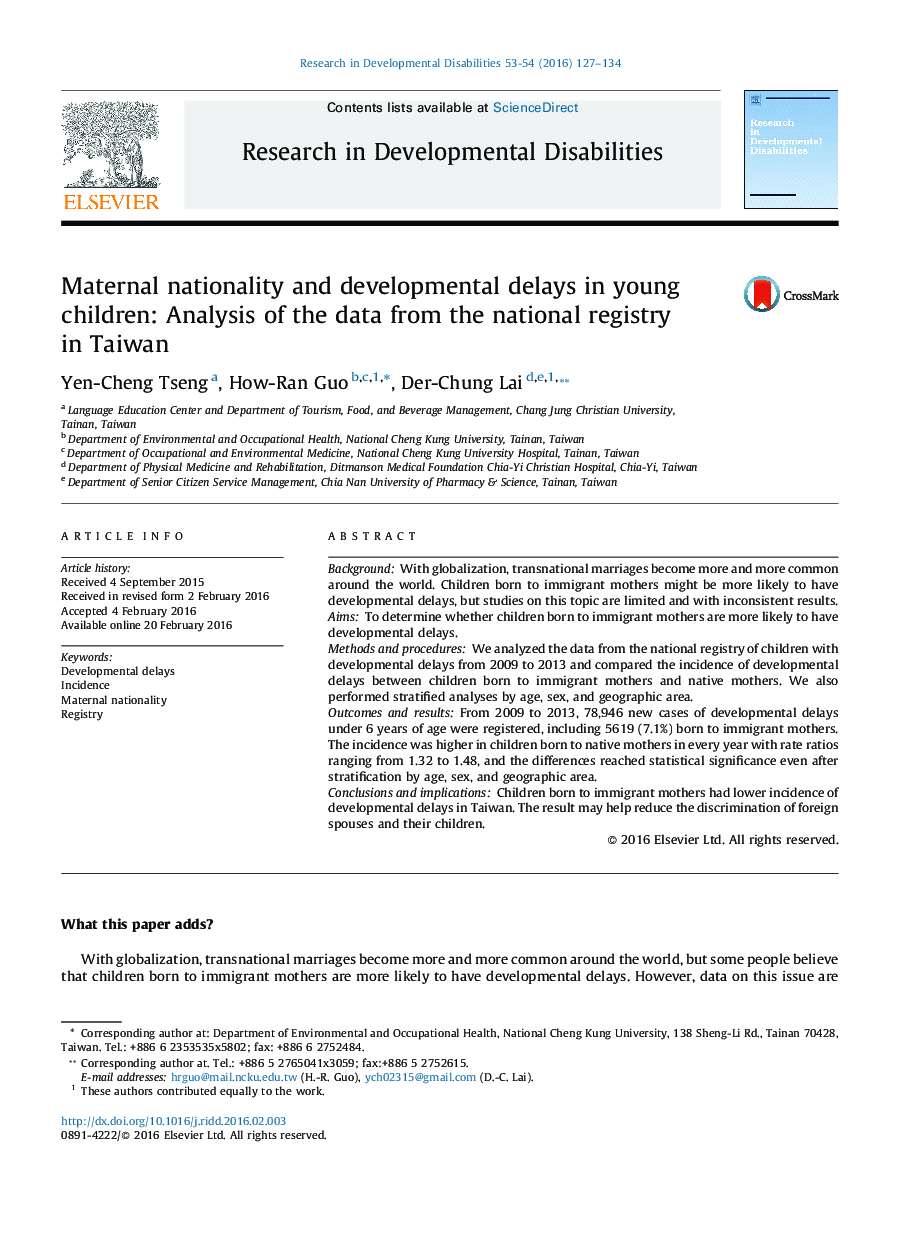| Article ID | Journal | Published Year | Pages | File Type |
|---|---|---|---|---|
| 370975 | Research in Developmental Disabilities | 2016 | 8 Pages |
•Children born to immigrant mothers might tend to have developmental delays.•We analyzed Taiwan registry data on child developmental delays from 2009 to 2013.•Incidence of developmental delays was higher in children born to native mothers.•The rate ratios in children born to native mothers ranged from 1.32 to 1.48.•The differences were significant after stratification by age, sex, and geographic area.
BackgroundWith globalization, transnational marriages become more and more common around the world. Children born to immigrant mothers might be more likely to have developmental delays, but studies on this topic are limited and with inconsistent results.AimsTo determine whether children born to immigrant mothers are more likely to have developmental delays.Methods and proceduresWe analyzed the data from the national registry of children with developmental delays from 2009 to 2013 and compared the incidence of developmental delays between children born to immigrant mothers and native mothers. We also performed stratified analyses by age, sex, and geographic area.Outcomes and resultsFrom 2009 to 2013, 78,946 new cases of developmental delays under 6 years of age were registered, including 5619 (7.1%) born to immigrant mothers. The incidence was higher in children born to native mothers in every year with rate ratios ranging from 1.32 to 1.48, and the differences reached statistical significance even after stratification by age, sex, and geographic area.Conclusions and implicationsChildren born to immigrant mothers had lower incidence of developmental delays in Taiwan. The result may help reduce the discrimination of foreign spouses and their children.
